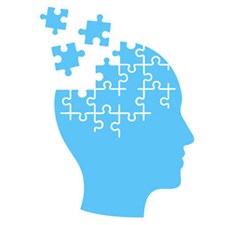Five surprising benefits of learning a new language

Have you been thinking about learning a new language? If you have, chances are it’s because you are either planning a trip and want to enrich your experience by being able to communicate with the locals, or maybe you’re wanting to reconnect with your heritage and be able to converse with relatives in their native tongue. Or perhaps you are looking to broaden your career opportunities and know that being bilingual will give you a leg up on the competition.
There are lots of reasons for people to want to learn a new language, but science is also discovering some new, rather surprising benefits of being bilingual:
 1. Better cognitive abilities
1. Better cognitive abilities
Researchers at the University of Edinburgh found that cognitive abilities—such as reading, verbal fluency and general intelligence—were significantly improved in individuals who spoke two or more languages, compared to those who only spoke one language. And more interestingly, the study showed that it’s never too late to benefit from learning a new language; even people who learned an additional language as an adult were shown to benefit from these improved skills.
2. Enhanced multi-tasking abilities
Multi-tasking can be difficult and stressful for those who are not used to it or don’t do it well. This is because it requires disengaging from one activity and switching to a different activity, requiring a completely new mindset, which can leave the mind vulnerable to distraction.
 However, several studies are indicating that people who speak more than one language are significantly better at multi-tasking than those who speak only one language. Why? It turns out that bilingualism strengthens executive functioning in areas of the brain that are responsible for blocking out distraction, which in the context of speaking multiple languages, keeps a word from one language slipping into place while speaking another language. This brain training then affects one’s ability to multi-task in other areas of their life as well, increasing productivity and reducing the stress associated with multi-tasking.
However, several studies are indicating that people who speak more than one language are significantly better at multi-tasking than those who speak only one language. Why? It turns out that bilingualism strengthens executive functioning in areas of the brain that are responsible for blocking out distraction, which in the context of speaking multiple languages, keeps a word from one language slipping into place while speaking another language. This brain training then affects one’s ability to multi-task in other areas of their life as well, increasing productivity and reducing the stress associated with multi-tasking.
 3. Increased resistance to Dementia and Alzheimers
3. Increased resistance to Dementia and Alzheimers
A study conducted by Nizam’s Institute of Medical Sciences in India found that people who speak more than one language tend to develop dementia about 4.5 years later than those who are monolingual. This is regardless of the individual’s education level, income, gender, or physical health. And with Alzheimer’s being such a devastating disease resulting in a slow death, delaying its onset by more than four years is a huge benefit.
4. Strengthened decision-making skills
Do you ever feel like you have a tendency to make rash decisions? Do your decisions tend to be emotion-based or just not well thought out? It turns out, learning another language can help with that.
 According to a study from the University of Chicago, bilinguals tend to make more rational decisions. It turns out that a person’s judgement can be subconsciously influenced by the biases contained in the nuance and subtle implications of the language in which the problem is presented. After thinking through a choice in another language, those biases can be reduced, resulting in a better, more rational decision.
According to a study from the University of Chicago, bilinguals tend to make more rational decisions. It turns out that a person’s judgement can be subconsciously influenced by the biases contained in the nuance and subtle implications of the language in which the problem is presented. After thinking through a choice in another language, those biases can be reduced, resulting in a better, more rational decision.
5. Increased brain size
Yes, you read that right: learning a new language can actually make our brain grow bigger. While it was common belief just a few years ago that once we reach adulthood our brains stop growing, we now know that, like muscles, our brain can grow bigger with exercise.
 Researchers were able to demonstrate this growth by measuring the brains of their participants before and after an intensive language training program and then comparing the results to those of a control group of medical and cognitive science students. The verdict? The control group’s brains remained unchanged, while the bilingual brains showed marked brain growth. They discovered another interesting correlation too: the more effort the students put into their learning, the bigger their brains grew.
Researchers were able to demonstrate this growth by measuring the brains of their participants before and after an intensive language training program and then comparing the results to those of a control group of medical and cognitive science students. The verdict? The control group’s brains remained unchanged, while the bilingual brains showed marked brain growth. They discovered another interesting correlation too: the more effort the students put into their learning, the bigger their brains grew.
- Posted December 2, 2025
RELATED TOPICS: French LanguageWorld Languages
Visit Registration
2nd Floor | Continuing Studies Building University of Victoria Campus 3800 Finnerty Road | Victoria BC | CanadaTel 250-472-4747 | Email uvcsreg@uvic.ca
2026 © Continuing Studies at UVic
Legal Notices |
Sitemap





